Q Skills for Success. Think Critically Succeed Academically


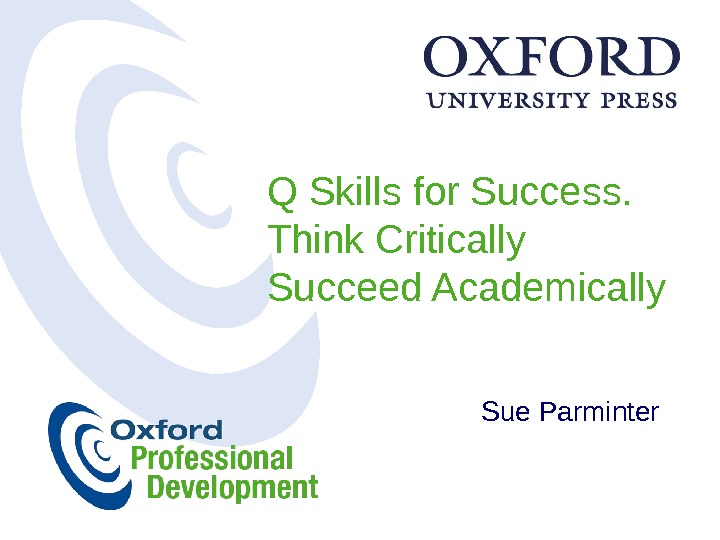
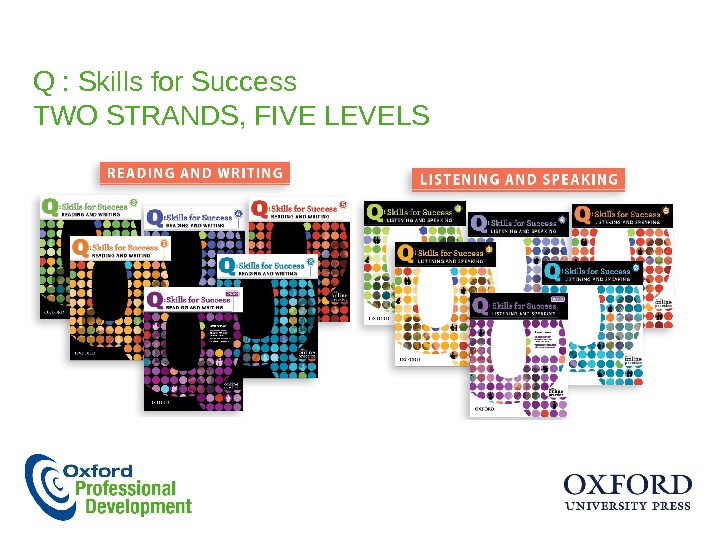
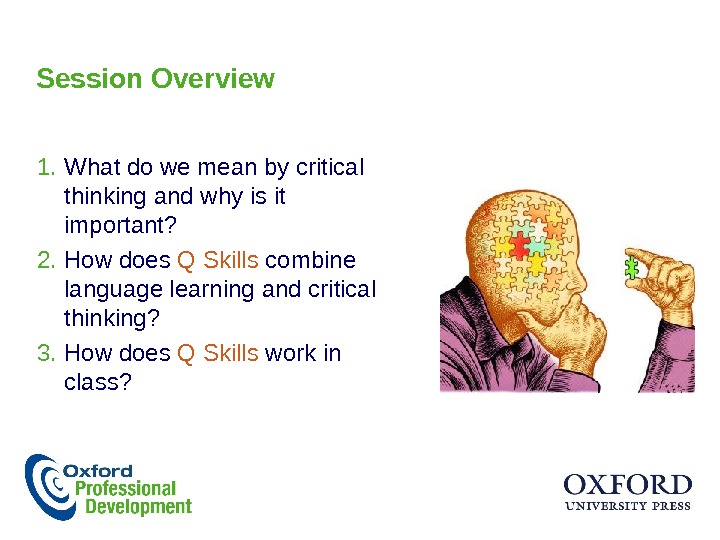


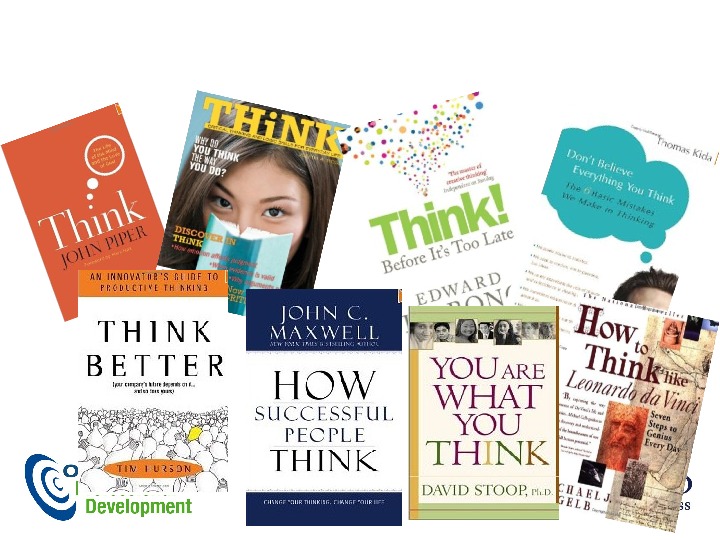

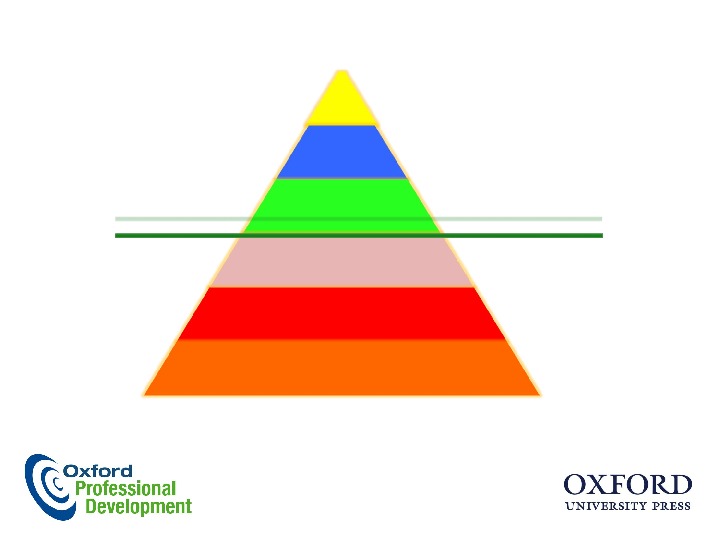
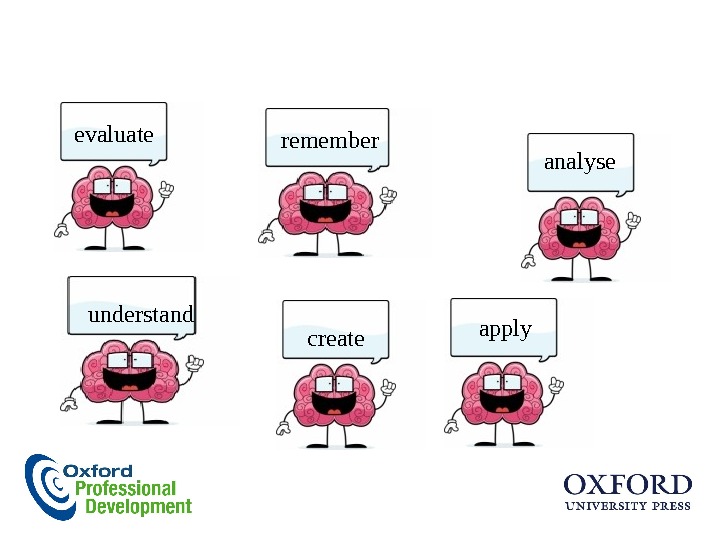
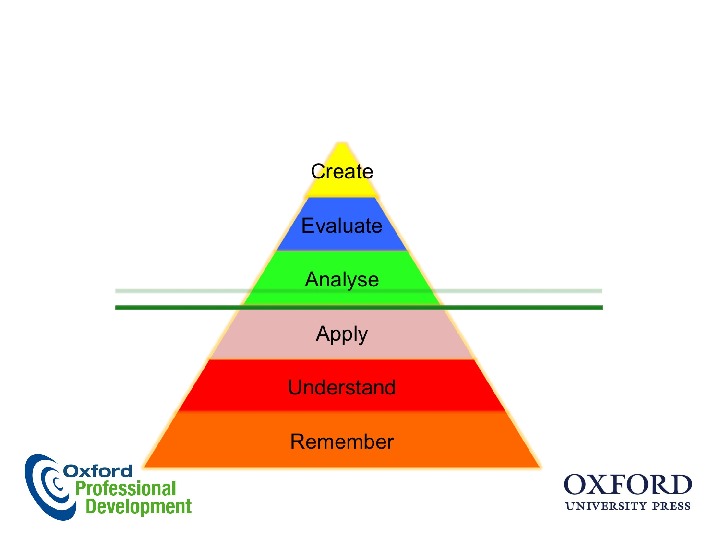
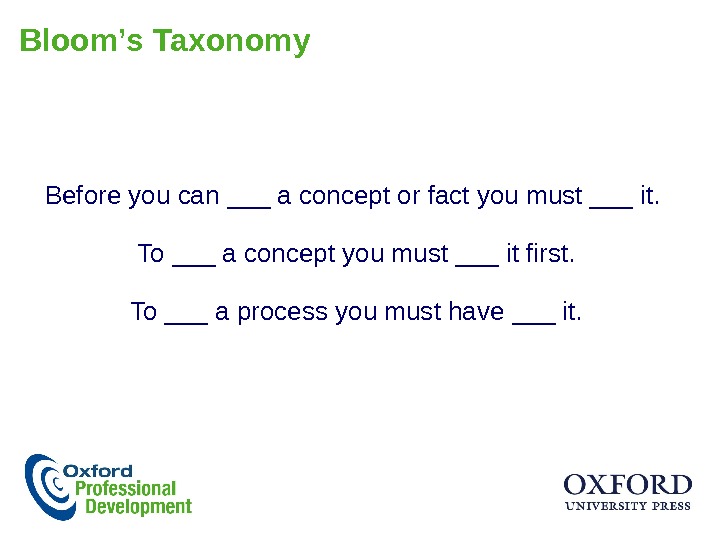
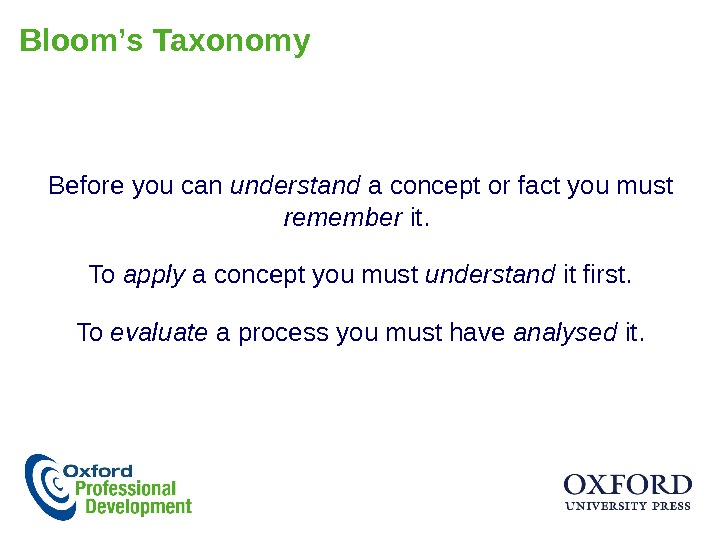
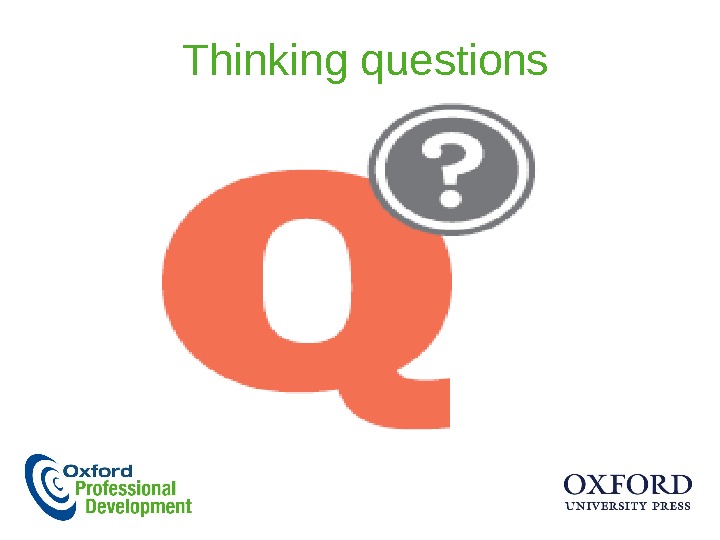
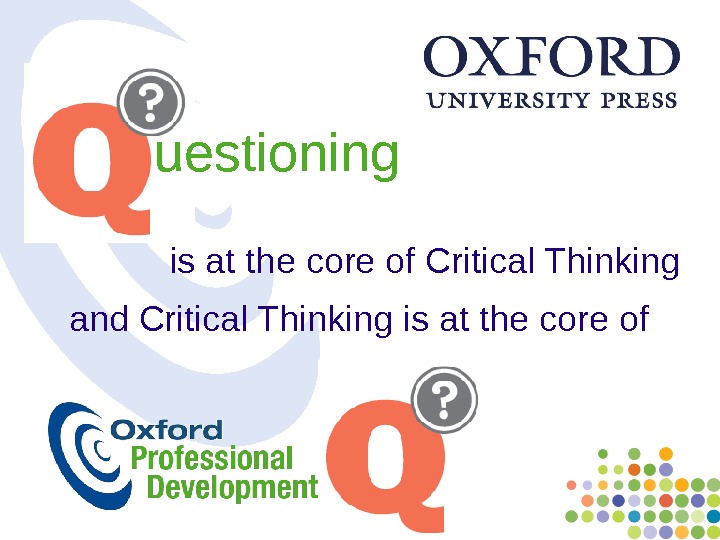
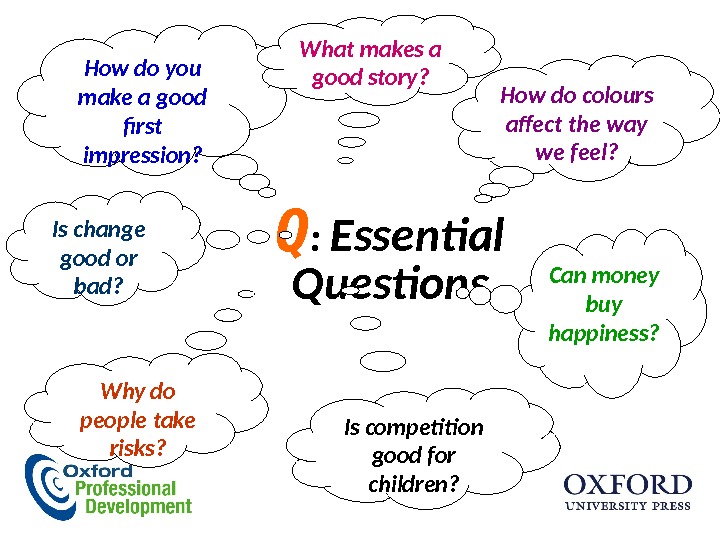
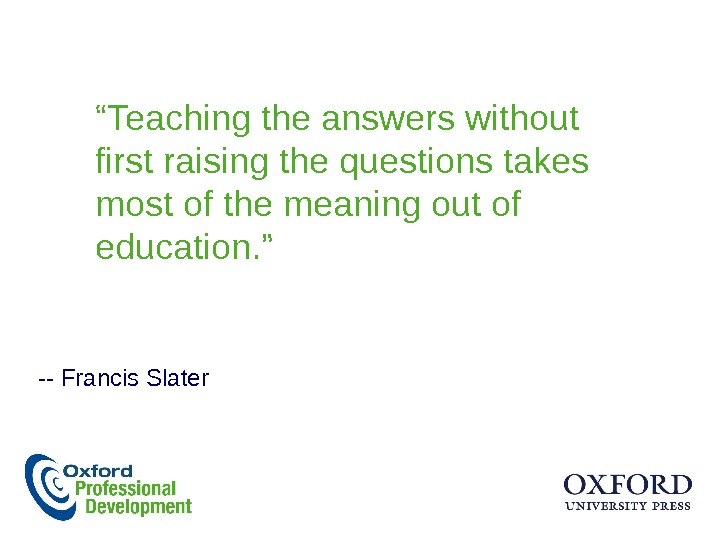

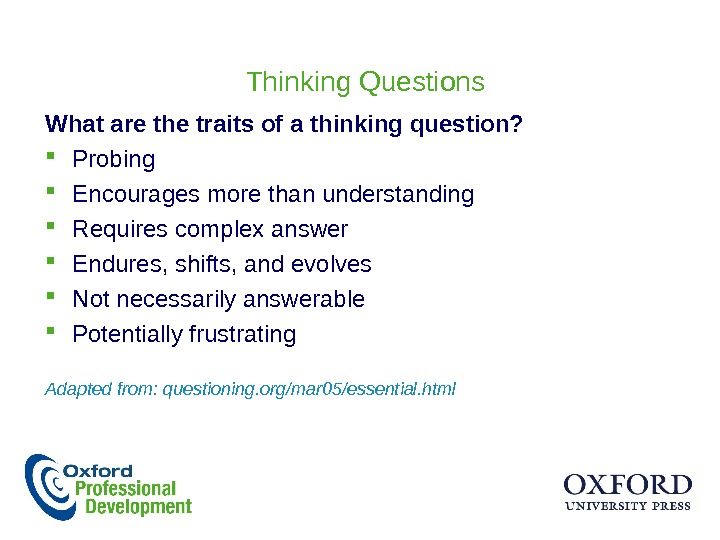
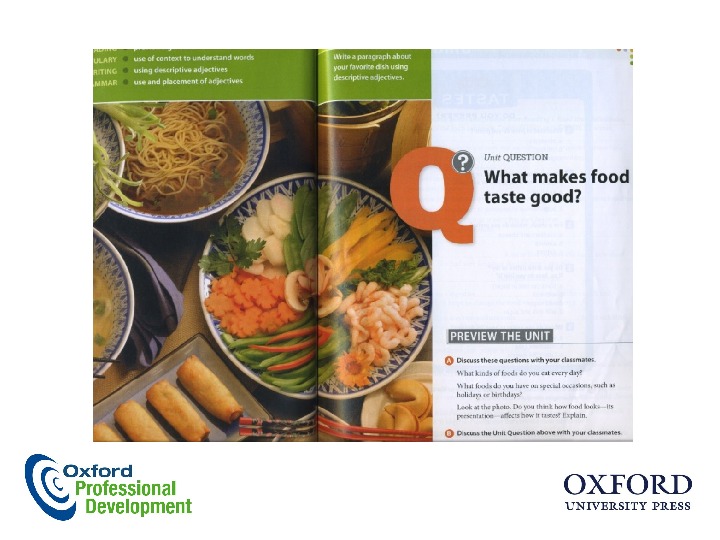
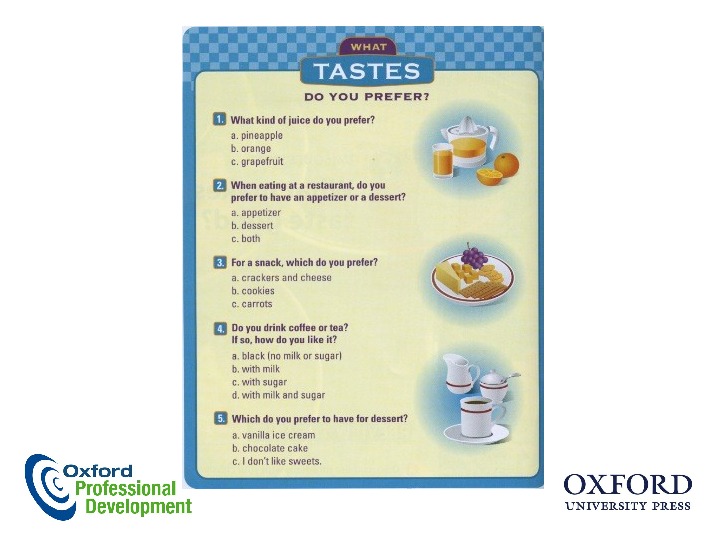

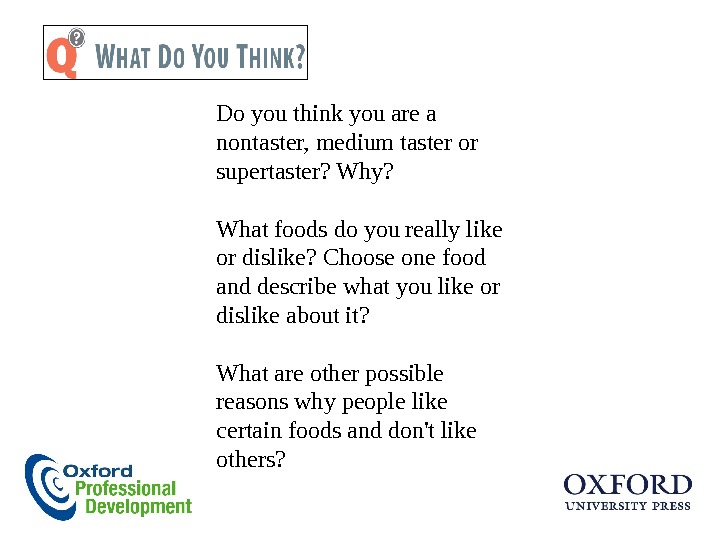

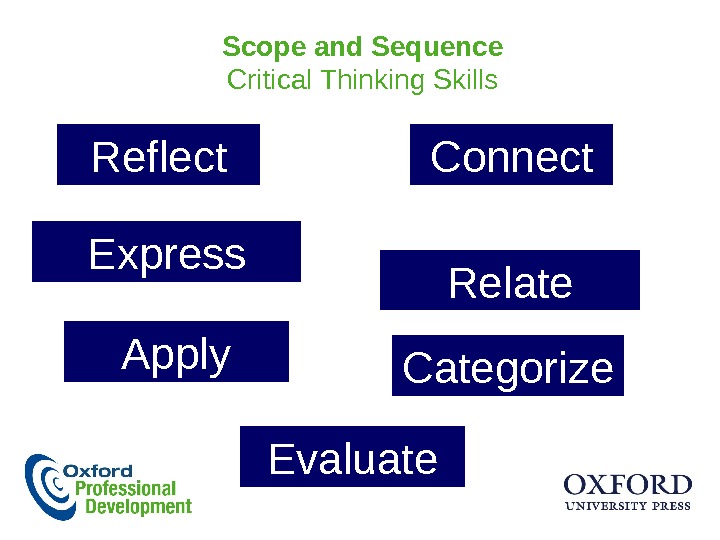
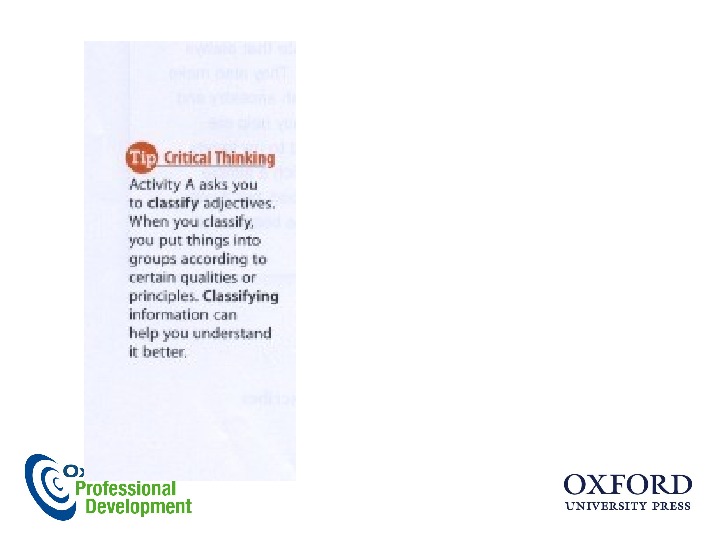
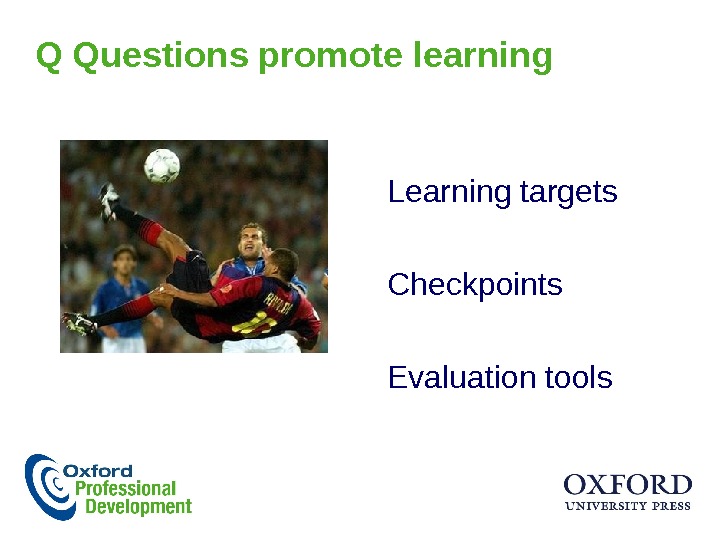

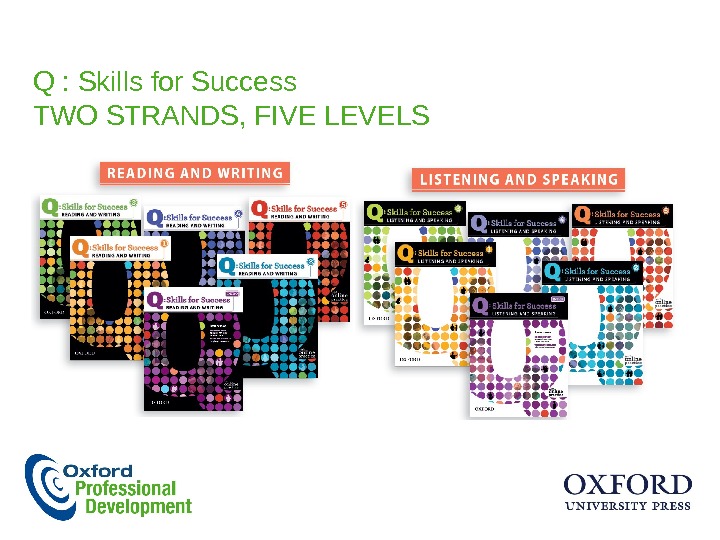
- Размер: 3.8 Mегабайта
- Количество слайдов: 29
Описание презентации Q Skills for Success. Think Critically Succeed Academically по слайдам

 Q Skills for Success. Think Critically Succeed Academically Sue Parminter
Q Skills for Success. Think Critically Succeed Academically Sue Parminter
 Q : Skills for Success TWO STRANDS, FIVE LEVELS
Q : Skills for Success TWO STRANDS, FIVE LEVELS
 Session Overview 1. What do we mean by critical thinking and why is it important? 2. How does Q Skills combine language learning and critical thinking? 3. How does Q Skills work in class?
Session Overview 1. What do we mean by critical thinking and why is it important? 2. How does Q Skills combine language learning and critical thinking? 3. How does Q Skills work in class?
 A challenge to think
A challenge to think
 How did you think?
How did you think?

 Critical thinkers
Critical thinkers

 evaluate remember analyse understand create apply
evaluate remember analyse understand create apply

 Bloom’s Taxonomy Before you can ___ a concept or fact you must ___ it. To ___ a concept you must ___ it first. To ___ a process you must have ___ it.
Bloom’s Taxonomy Before you can ___ a concept or fact you must ___ it. To ___ a concept you must ___ it first. To ___ a process you must have ___ it.
 Bloom’s Taxonomy Before you can understand a concept or fact you must remember it. To apply a concept you must understand it first. To evaluate a process you must have analysed it.
Bloom’s Taxonomy Before you can understand a concept or fact you must remember it. To apply a concept you must understand it first. To evaluate a process you must have analysed it.
 Thinking questions
Thinking questions
 uestioning is at the core of Critical Thinking and Critical Thinking is at the core of
uestioning is at the core of Critical Thinking and Critical Thinking is at the core of
 Q : Essential Questions. How do you make a good first impression? Why do people take risks? Is competition good for children? What makes a good story? How do colours affect the way we feel? Can money buy happiness? Is change good or bad?
Q : Essential Questions. How do you make a good first impression? Why do people take risks? Is competition good for children? What makes a good story? How do colours affect the way we feel? Can money buy happiness? Is change good or bad?
 “ Teaching the answers without first raising the questions takes most of the meaning out of education. ” — Francis Slater
“ Teaching the answers without first raising the questions takes most of the meaning out of education. ” — Francis Slater

 Thinking Questions What are the traits of a thinking question? Probing Encourages more than understanding Requires complex answer Endures, shifts, and evolves Not necessarily answerable Potentially frustrating Adapted from: questioning. org/mar 05/essential. html
Thinking Questions What are the traits of a thinking question? Probing Encourages more than understanding Requires complex answer Endures, shifts, and evolves Not necessarily answerable Potentially frustrating Adapted from: questioning. org/mar 05/essential. html



 Do you think you are a nontaster, medium taster or supertaster? Why? What foods do you really like or dislike? Choose one food and describe what you like or dislike about it? What are other possible reasons why people like certain foods and don’t like others?
Do you think you are a nontaster, medium taster or supertaster? Why? What foods do you really like or dislike? Choose one food and describe what you like or dislike about it? What are other possible reasons why people like certain foods and don’t like others?
 Analyze Interpret Synthesize Apply. Interpret
Analyze Interpret Synthesize Apply. Interpret
 Scope and Sequence Critical Thinking Skills Reflect Relate. Express Apply Categorize Connect Evaluate
Scope and Sequence Critical Thinking Skills Reflect Relate. Express Apply Categorize Connect Evaluate

 Q Questions promote learning Learning targets Checkpoints Evaluation tools
Q Questions promote learning Learning targets Checkpoints Evaluation tools
 examine associate estimate relate determine identify explain predict solve group
examine associate estimate relate determine identify explain predict solve group
 Q : Skills for Success TWO STRANDS, FIVE LEVELS
Q : Skills for Success TWO STRANDS, FIVE LEVELS

